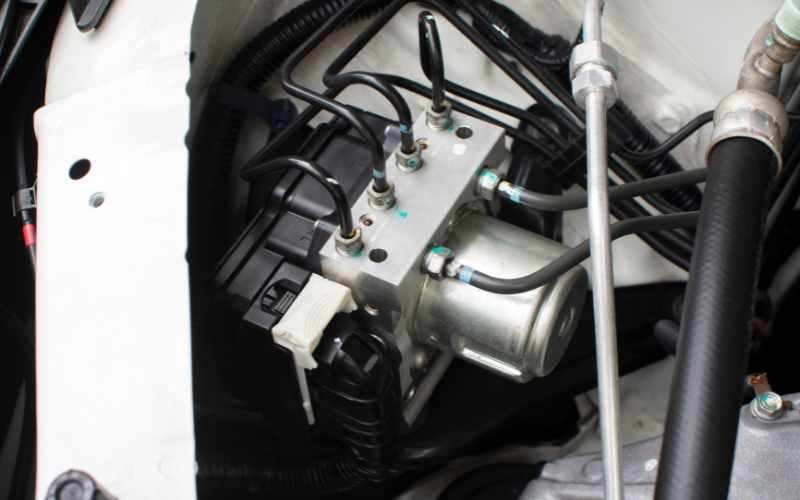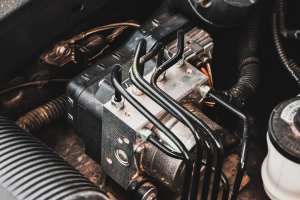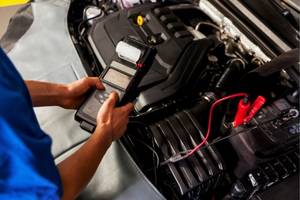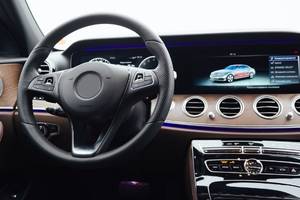Introduction
Welcome to the fascinating world of automotive electronic modules! These tiny yet powerful components are the unsung heroes behind the smooth operation of your car. From flickering lights and starting the engine to the smooth operation of power windows, electronic modules play a crucial role in modern vehicles. In this article, we will explore the fundamental aspects of automotive electronic modules, dive into their various types, and provide valuable tips on handling, maintaining, and troubleshooting them. Whether you're an aspiring automotive ECU expert or simply curious about what makes your car tick, you're in the right place. So sit back and join us as we begin a journey into the world of automotive electronic module experts.
1. Overview of Automotive Electronic Modules
We are talking about automotive electronic modules, which can be considered the brains of everything that executes in your vehicle. These include the ignition system and air conditioning, for example. If you are planning to become an automotive ECU expert, there are a few areas where you should focus:
Control Modules: These are the big guns in the module world. They're responsible for controlling major systems in your vehicle, like the engine control module (ECM) and the powertrain control module (PCM). They're the ones that ensure your engine runs smoothly and your transmission shifts gears like a dream.
Module Sensors: These are the eyes and ears for the control modules. They observe conditions, for example, pressure and speed, and broadcast this back to the control modules. Sensors such as the oxygen sensor or the speed sensor.
Module Communication: This concerns aspects of a particular module interacting with other modules present in the system. They communicate using networks such as the Controller Area Network (CAN) bus system. This means everything within your car works together.
These elements are crucial to understanding and are the first step in mastering the automotive electronic module. And, of course, for electronic modules, the devil is in the details! Not even the tiniest of glitches is allowed because the smallest problem could lead to performance issues or, worse, an unwarranted trigger of the personal-panic button, a.k.a. dashboard warning lights. Chill — with the right information and some patience, you can breeze through these modules with no problem.
2. Tips for Handling and Maintenance of Electronic Modules
Just like a well-tuned engine, electronic modules need a good dose of TLC to keep them running smoothly. Here's a few tips to get you started:
Safety First: Before you so much as touch an electronic module, make sure you're wearing an anti-static wrist strap. Electronic modules are sensitive to electrostatic discharge, and the last thing you want is to accidentally fry something.
Cleanliness is Key: Dirt and dust can hinder module operation. Using a can of compressed air, carefully clean the module and its surroundings. Note that electronic modules do not like moisture, so it is worthwhile to avoid wet cleaning.
Regular Checks: By conducting a thorough yearly inspection, you may catch some issues before they become bigger problems. Check damages, wear and tear, and if any components are corroded. If anything seems unnatural, investigate further.
Stay Updated: Just like the apps on your smartphone, your electronic modules need occasional updates. Manufacturers often release firmware updates that can improve the performance of modules or fix known issues. Keep an eye out for these and install them as needed.
3. Techniques for Troubleshooting Common Module Issues
As any seasoned automotive electronic module expert will tell you, troubleshooting is part art, part science, and a whole lot of patience. Here are some techniques to help you tackle common module issues:
Be A Detective
Investigating the problem is the first step in any troubleshooting process. Listen to the symptoms, analyze the situation, and identify the possible causes. Is the module not responding? Is it behaving erratically? The answers to these questions can offer valuable clues.
You will not fix a punctured tire with a hammer, right? You probably also know, as we do, that electronic modules are no exception. Purchase a good multimeter, an OBD scanner that reads correctly, and a set of screwdrivers. With these tools, you can find out if there is a problem and repair it
Check the Connections
Loose or corroded connections can cause a lot of headaches for automotive electronic module experts. Bad connections are the bane of automotive module technology everywhere. Check all connections and cables, and if you see a loose wire, tighten it up. In case of any corrosion, clean it up.
Don’t Forget the Basics
Sometimes, the simplest solutions are the best. If a module is acting up, try resetting it. This can often solve minor problems and save you a lot of time and effort.
Know When to Call for Backup
If you've tried everything and the module is still not working properly, it might be time to call in a specialist or consider replacing the module. Click here to get an ECM Repair Quote!

4. Best Practices for Module Installation and Replacement
It's one thing to troubleshoot a module, and it's another thing to install or replace it. Even the most experienced automotive electronic module experts will tell you that they've learned a thing or two about installation and replacement along the way. Here's a few best practices they've shared:
Preparation is Key
You'll need tools and parts before installation. This can be a new module, a screwdriver, or even a soldering iron.
Safety First
Always disconnect the battery before you start working on any electronic modules. Electricity can be risky business, so it's better to be safe than sorry.
Follow the Manufacturer's Instructions
Every module is different, and the manufacturer's instructions are your best guide. Don't skip steps or make assumptions—just follow the instructions to the letter.
Test Before You Finalize
Before putting everything back together, you need to test the new module to make sure it's working. If there's an issue, you can handle it without having to take everything apart again.
Conclusion
Understanding and maintaining automotive electronic modules is essential for ensuring your vehicle's optimal performance. These modules are the backbone of modern automotive technology, controlling and coordinating a number of functions to keep your car running smoothly. By following the tips and techniques shared in this guide, you can handle, maintain, and troubleshoot electronic modules with confidence. Whether you're a seasoned expert or just starting, mastering these modules will enhance your automotive skills and ensure your vehicle remains in top condition. Happy driving!
FAQs on
Automotive Electronic Module Experts Tips, Techniques, and Best Practices
-
1. What are automotive electronic modules?
Ans.
Automotive electronic modules are the brains behind your vehicle's various functions, controlling everything from the ignition system to air conditioning. They ensure that your car runs smoothly and efficiently.
-
2. What are control modules, and why are they important?
Ans.
Control modules, such as the engine control module (ECM) and powertrain control module (PCM), are essential for regulating major systems in your vehicle. They ensure the engine runs smoothly and the transmission shifts gears properly.
-
3. How do module sensors work?
Ans.
Module sensors act as the eyes and ears of control modules. They monitor conditions like pressure and speed, transmitting this information to control modules to ensure optimal performance.
-
4. What is the importance of module communication in vehicles?
Ans.
Module communication ensures that different modules within the vehicle interact smoothly using networks like the Controller Area Network (CAN) bus system. This coordination is important for the smooth functioning of the entire vehicle.
-
5. How can I maintain my vehicle's electronic modules?
Ans.
Maintaining electronic modules includes safety measures like wearing an anti-static wrist strap, keeping the modules clean and dry, conducting regular inspections, and staying updated with software updates from manufacturers.
-
6. What should I do if I encounter issues with an electronic module?
Ans.
Troubleshooting module issues involves investigating the problem, using the right tools, checking connections, resetting the module if needed, and seeking professional help if the problem persists.



